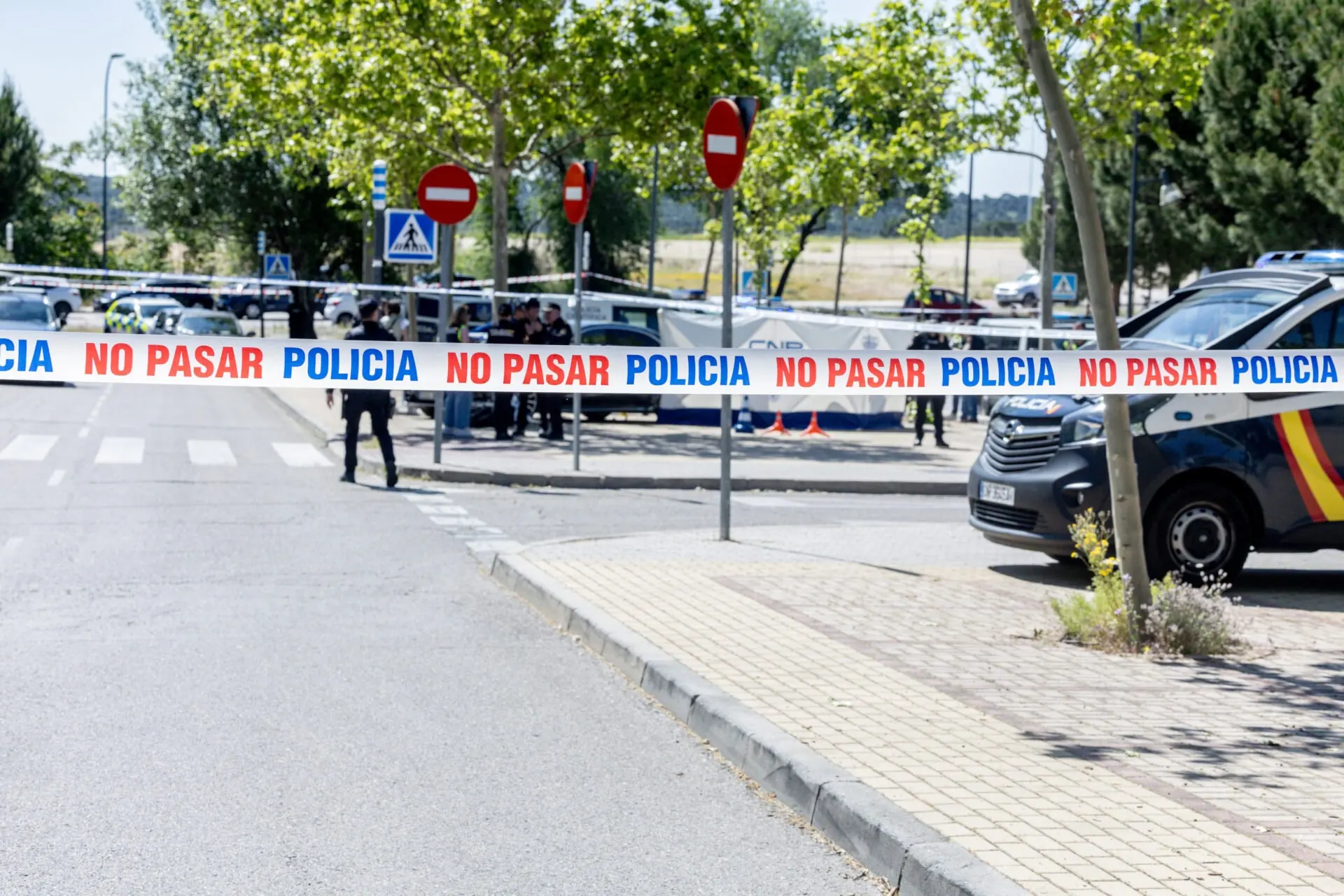Since Russia’s invasion of Ukraine in 2022, the Kremlin has increasingly used Russian organized crime groups to conduct operations abroad, including political targeting and financial crime. This deepening cooperation, accelerated by the war as well as Putin’s increasing hostility toward the West, has tied crime and conflict together in a way previously limited in Europe, threatening to increase Russia’s ability to degrade the West while empowering dangerous criminal networks.
Law enforcement agencies are generally responsible for investigating and combating Russian-based organized crime (RBOC) groups, but the Russian state’s recent increased directives to these groups now makes them an intelligence and security threat. Its use of organized crime is becoming another tool in great power competition, specifically its expansive hybrid warfare campaigns, which reinforce fear of the Russian state, target political adversaries, and may prove to be a long-term advantage in the country’s conflict with Ukraine and the wider West.
If the United States and its partners fail to effectively acknowledge and react to this development, they will become more vulnerable to Russian operations in the future, even if RBOC is not heavily present in the U.S. now.
State-Crime Collaboration
Cooperation between Russian authorities and RBOC is nothing new, but the present relationship, active since Putin’s ascension to the presidency in 2000, has paved the way for criminal groups to be increasingly co-opted by the government. RBOC groups are uniquely suited for state collaboration. Using these groups, the Russian state can claim plausible deniability by sidestepping the use of state assets with non-state criminal actors, while also providing a more cost effective avenue for disrupting its enemies and enriching the state when compared to Russian intelligence. This collaboration increases the power of Russian organized crime as well, freeing it from law enforcement crackdowns in its most vital domestic markets and granting it some cover abroad with the Russian state.
Putin espoused a tough-on-crime platform in his early days in power, despite his routine interactions with St. Petersburg gangsters during his time as its mayor in the 1990s. Despite his rhetoric, Putin largely enacted a policy of salutary neglect toward the Russian crime networks, allowing them to operate provided they did not embarrass the state or cause too much commotion with high profile violence. For example, during the 2018 World Cup hosted in Russia, local criminal leaders were summoned to police stations and ordered not to prey on visiting tourists.
Putin even took steps to silence gangsters with whom he had interactions in the 1990s. High-profile businessman and suspected mob boss Roman Tsepov was fatally poisoned in 2004 after visiting an FSB office, not long after publicly disclosing his interactions with Putin. Another St. Petersburg mob boss, Vladimir Kumarin, was arrested in 2007 in a dramatic police operation as he began to cultivate a celebrity status for himself.
Despite the Russian state’s high-profile crackdowns on organized crime, it has also co-opted RBOC groups for its own operations throughout Europe. While an opaque subject, some high-level Russian officials even have personal ties to Russian criminal networks. Viktor Zolotov, head of Russia’s Rosgyvardia national guard, served as Putin’s bodyguard in the 1990s and rubbed shoulders with many of the same gangsters as the president. He attended Tsepov’s funeral alongside other mob bosses, and the two families had financial connections. More notably, the deputy director of the FSB, Sergei Korolev, was found to have various direct ties to Russian gangsters, including hitmen and internationally wanted mob bosses, as late as 2018.
Since the Ukrainian invasion, the use of RBOC members for covert action appears to have increased, largely due to widespread expulsions of Russian agents from European embassies, greatly degrading the Kremlin’s intelligence capabilities on the continent. While RBOC groups may often be less effectual, especially regarding intelligence-gathering and assassination, the low cost, compared to traditional espionage methods, and wide reach of these groups makes them a useful resource for Russia, especially with its now-degraded intelligence capacity.
Financially, RBOC groups have been covertly taxed by the FSB, transferring part of their earnings to bank accounts that pay for Russian covert operations. Money-laundering groups have also been used to “clean” money for the state and Russian oligarchs, helping them evade sanctions. RBOC members have also proven to be a cheap source of information for Russian intelligence operations, and liaisons between the FSB and various RBOC gangs across Europe have existed for decades.
Assassinations and Political Violence
Russia haslong employed its intelligence services to assassinate political targets across the world, including Leon Trotsky, Stephan Bandera, and Alexander Litvinenko. However, more recently the Russian state has also leaned on organized crime groups to kill political targets, a trend that has increased since the Ukraine invasion. In 2011, Russian gangsters were found responsible for gunning down a group of Chechen gangsters in Istanbul, Türkiye, affiliated with the Chechen separatist movement. Turkish officials had suspected the killers of working with Russian intelligence. In 2019, notorious Russian gangster Vladgin Krasikov fatally shot another Chechen dissident, Zelimkhan Sultanovich Khangoshvili, in Berlin, Germany. Investigators discovered Kasikov had been hired by the Russian FSB for the job, and he was released in a prisoner exchange with Western countries in 2024.
In Spain, high-profile deaths of those who have wronged Russia have occurred in back-to-back years. In February 2024, Maxim Kuzminov, a Russian helicopter pilot who defected during the war, was shot and killed in a parking garage in Alicante. While the killing was commissioned by Russian intelligence, the nature of his killing, being shot many times and subsequently being run over by a car rather than poisoned, suggested less-professional perpetrators. While the killers were never discovered, it is likely that one of the regionally active Russian-based crime groups was responsible.
In May, an adviser to former pro-Russian Ukrainian president Viktor Yanukovich, Andriy Portnov, was gunned down outside of his children’s school in Madrid. As of this writing, the perpetrators are still at large. Portnov had been in contact with Spanish intelligence prior to his death, as well as high-level Ukrainian officials.
In light of the relatively inexpensive nature of working with RBOC and Russia’s increasingly challenged economy in the face of the Western sanctions regime, state collaboration with RBOC groups will likely increase. Given Russia’s intelligence isolation in Europe, it will continue to outsource operations, often uniquely suited to RBOC, which already specializes in evading authorities, illicit finance, and violence.
This threat will only increase in the event of a ceasefire or peace deal between Russia and Ukraine that frees more resources for Russian covert operations and handling, and reopens a vast network of illicit connections that were severed with the war. Rebuilding Russian intelligence networks, both for intelligence-gathering and covert actions, will take time after the end of the war, and RBOC groups will be able to serve as a stopgap. The resumption of some normalization between Russia and Europe would also free illicit trade routes again, making RBOC groups richer and a more lucrative illicit tax base.
Recommendations
Monitoring and Intelligence Sharing: The FBI’s Counterintelligence Division and the U.S. State Department’s Bureau of International Narcotics and Law Enforcement Affairs should increase liaisons with national and local law enforcement in RBOC hotspots. The CIA and FBI should also increase cooperation with intelligence agencies in areas where RBOC groups are most active, especially regarding Russian dissidents. The use of RBOC by the Kremlin is not merely an issue of criminality but also of espionage and security. In particular, Spanish, Israeli, Cypriot, and Ukrainian law enforcement and intelligence entities should increase their cooperation.
Transnational Repression Awareness: Law enforcement and intelligence officials across Europe should be aware of Russian use of RBOC groups to enact transnational repression and expand their horizons regarding threats to potential Russian targets. Russian dissidents may increasingly be targeted across Europe, as the cost of using RBOC groups for hits is much lower and more deniable than the use of dedicated state assassins.
Increased Monitoring of RBOC: U.S. policymakers must initiate closer monitoring of the Russian state/crime nexus. RBOC groups, especially across Europe and Eurasia, should be treated not only as criminal organizations but also as vectors for state financial crime and covert action. This would require more collaboration with law enforcement, as well as increased scrutiny of these groups directly by intelligence agencies.
Selective Leaking: American and European intelligence and law enforcement agencies should use public statements of declassified intelligence to rob Russia of its plausible deniability. If connections between Russian intelligence and RBOC groups are discovered, agencies should publicize it whenever possible. This tactic was used effectively by former President Joe Biden’s administration in the lead-up to the Russian invasion of Ukraine, robbing Russia of its attempts to justify its invasion in the information space.






